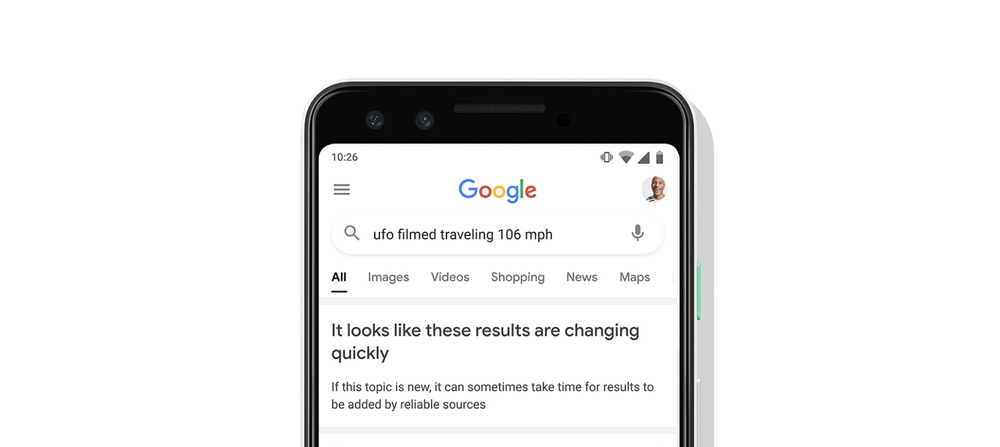Google recently updated its search engine with an additional feature. Now, when people perform a Google search on a breaking story or a topic that is “rapidly evolving”, the search engine will alert them through pop-ups to the potential unreliability of its results.
The new prompt encourages users to take note that the topic in question is developing, so the search results are rapidly changing as new information is made available. The prompt, which appears above the search results, says, “If this topic is new, it can sometimes take time for results to be added by reliable sources.” Basically, the prompt is cautioning users to take everything with a grain of salt and wait for more information to come to light.
Google said its software systems will decide when the warning needs to be triggered by detecting rapidly developing topics that have a limited range of sources. “We’ll now show a notice indicating that it may be best to check back later when more information from a wider range of sources might be available,” Danny Sullivan, Google’s public liaison for search, wrote in a blog post.

According to a report from TechCrunch on Thursday, Google began testing this feature a week ago. However, the company stated at the time that only a small percentage of search results were showing the warning. The features will be rolled out to U.S. users over the coming months, the company said on Friday.
In recent years, Google has employed several fact-checking measures to prevent the spread of misinformation and include critical context for topics that go viral on the web. With all the focus on issues related to misinformation, extremism, and toxicity on its platforms, Google has developed several fact-checking features such as warning labels to image searches and knowledge labels to help fight these problems. Critics have ramped up their criticism of COVID-19, as well as elections since Silicon Valley giants have tried to combat their opponents’ claims regarding COVID-19, as well as other issues.
(Source: Gizmodo)
Follow us on Instagram, Facebook, Twitter or Telegram for more updates and breaking news.



